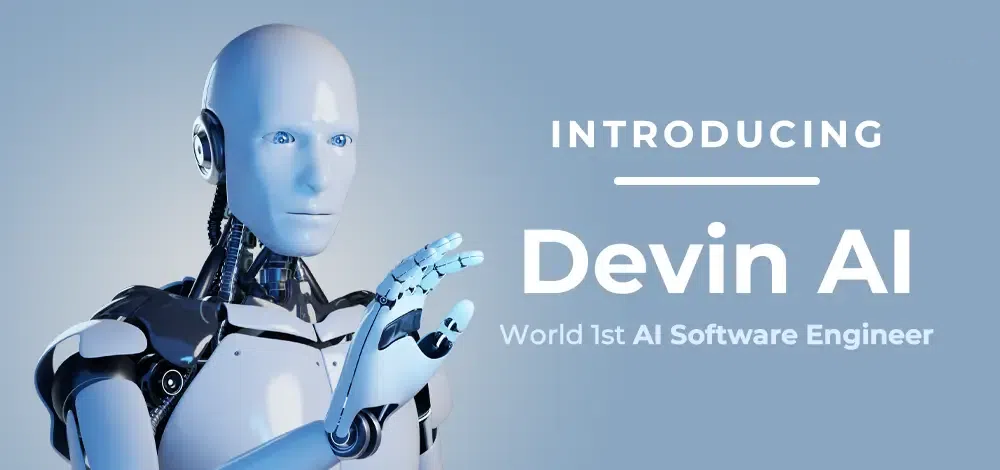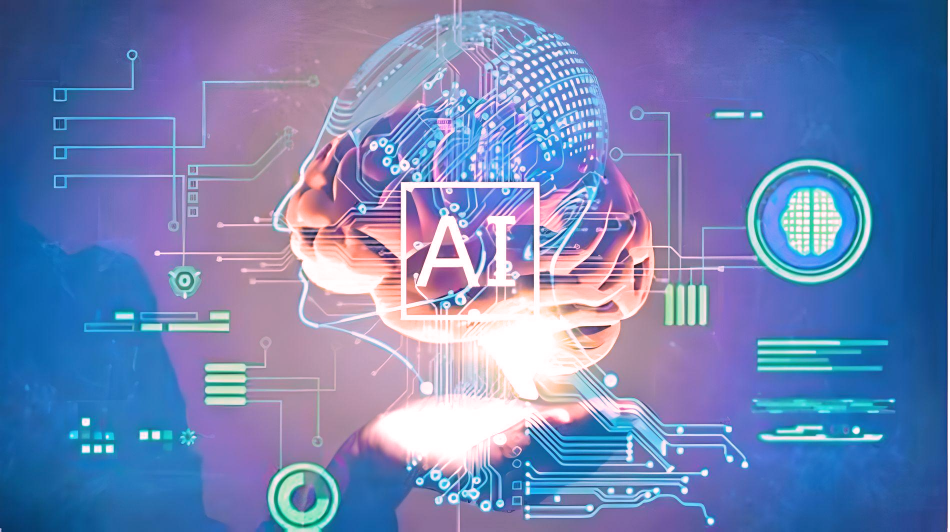Introduction
The Devin is Here to Take Software Jobs: In a groundbreaking leap for the tech industry, an autonomous AI software engineer named Devin has emerged. This cutting-edge creation by Cognition AI promises to redefine the landscape of software development. Buckle up, because Devin is here to shake things up!

Table of Contents
Who Is Devin?
Devin isn’t just another chatbot or code helper. It’s a full-fledged software engineer, capable of handling complex tasks from start to finish. Let’s dive into what makes Devin so remarkable:

1. Autonomous Coding
Devin can write code in multiple programming languages, including Python, JavaScript, and more. Whether it’s building websites, crafting apps, or solving intricate problems, Devin’s got it covered.
2. Learning and Adapting
Devin learns from each project it encounters. With every line of code, it becomes more efficient and effective. Imagine an AI that evolves alongside human engineers—Devin is that ally.
3. Collaboration, Not Replacement
Cognition emphasizes that Devin is a teammate, not a replacement. It reports progress in real time and works alongside human engineers. By handling routine coding tasks, Devin frees up engineers to tackle more exciting challenges.
Origins and Impact
Let’s explore the backstory:
1. Cognition: The Brain Behind Devin
Cognition, led by visionary Scott Wu, aims to make AI smarter. Devin is their brainchild—a tool that complements human engineers. While Devin handles day-to-day coding, engineers can focus on solving bigger, tougher problems.
2. AI’s Evolution in Software Engineering
Before Devin, AI tools were like helpful assistants, focusing on specific tasks. Devin, however, takes on entire coding projects independently. It’s the first AI that understands complex tasks and executes them autonomously.
Capabilities of Devin
Devin is like a super-smart robot with coding prowess:
1. Coding
Devin writes code fluently, creating websites, apps, and more.
2. Testing
It checks its own work, ensuring smooth functionality.
3. Deployment
Devin deploys software, making it ready for the world.
Real-World Applications
Devin’s potential is vast:
1. Web App Development
Businesses can use Devin to build and deploy web applications swiftly.
2. Bug Fixing
Devin hunts down and fixes bugs in codebases, saving time and effort.
3. AI Model Training
It can even train and fine-tune AI models, accelerating innovation.
Devin vs. Other Models
In benchmark tests, Devin outperformed specialized coding models and large language models. It’s unassisted, meaning it tackles tasks independently.
Early Access and Future Outlook
While Devin isn’t publicly available yet, Cognition plans to offer early access to engineering teams. Imagine a future where AI and humans collaborate seamlessly—Devin is leading the way.
So, next time you hear about Devin, remember: it’s not just a program; it’s a revolution in software engineering. The Devin era has begun, and it’s here to stay! For more information, so please visit this link.
Article Sources:
- What is Devin? The AI software engineer everyone is talking about
- Software engineering jobs at risk? AI startup unveils ‘Devin’ who is good at coding, fixing bugs
- Meet Devin AI, the world’s ‘first fully autonomous’ AI software engineer
- Meet Devin: The First AI Software Engineer Redefining Code
Frequently Asked Questions (FAQs) – The Devin is Here to Take Software Jobs
1. Who is Devin, and what makes it unique in the realm of AI?
Devin is an autonomous AI software engineer developed by Cognition AI. Unlike other AI models, Devin is capable of autonomously handling complex coding tasks, learning and adapting from each project it encounters.
2. What are the key capabilities of Devin as an AI software engineer?
Devin possesses several key capabilities, including autonomous coding across multiple programming languages, learning and adapting from projects, collaboration with human engineers, testing its own work, and deploying software.
3. How does Devin impact software engineering and development processes?
Devin revolutionizes software engineering by streamlining coding tasks, freeing up human engineers to focus on solving bigger challenges. It enhances productivity, accelerates development cycles, and fosters collaboration between AI and human engineers.
4. What distinguishes Devin from other AI models or coding assistants?
Devin stands out for its autonomy and ability to handle entire coding projects independently. Unlike specialized coding models or large language models, Devin doesn’t require human intervention for task execution, making it a game-changer in the field of AI-driven software engineering.
5. What are the real-world applications of Devin in software development?
Devin has diverse applications, including web app development, bug fixing, AI model training, and more. It enables businesses to build and deploy software swiftly, identify and fix bugs efficiently, and accelerate innovation in AI model training.
6. How can teams access Devin for their software engineering needs?
While Devin isn’t publicly available yet, Cognition plans to offer early access to engineering teams. This early access allows teams to experience firsthand the benefits of collaborating with an autonomous AI software engineer like Devin.
7. How does Devin impact the future of software engineering and AI development?
Devin signifies a paradigm shift in software engineering, leading the way towards seamless collaboration between AI and human engineers. It paves the path for a future where AI-driven tools like Devin augment human capabilities, driving innovation and redefining industry standards.
8. Where can I find more information about Devin and its impact on software engineering?
For further insights into Devin and its implications for the software engineering landscape, refer to the provided sources. These articles offer in-depth analyses and perspectives on how Devin is reshaping the future of AI-driven software development.
